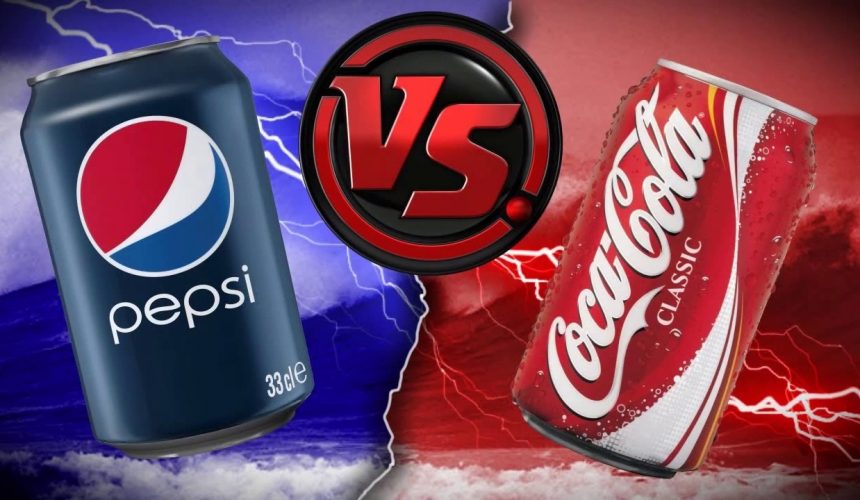Just like many brands in the market, Coca-Cola and Pepsi, the two global beverage giants have taken their hits during the COVID-19 pandemic outbreak due to restaurant closures and other pandemic-related disruptions. But none of the coronavirus-induced disturbances could abate the customary marketing battle between the two American beverage behemoths.
The cola wars refer to the long-time rivalry between soft drink producers The Coca-Cola Company and PepsiCo, who have engaged in mutually-targeted marketing campaigns for the direct competition between each company’s product lines, especially their flagship colas, Coca-Cola and Pepsi. Beginning in the late 1970s and into the 1980s, the cola wars escalated, and are still being fought on all fronts today.
The Coca-Cola Company was founded by an Atlanta pharmacist who’d secured the recipe (which contained small amounts of cocaine until 1929). Up in North Carolina, another pharmacist invented his own sugar-drink in 1893. After seeing the success of Coca-Cola, he changed his soda’s name from “Brad’s Drink” to “Pepsi-Cola” in 1898 and founded the Pepsi-Cola Company in 1902. Ever since, the unending battle between them has become a permanent fixture within the branding and marketing ecosystem.
The Super Bowl has long served as a major front for the long-running soda war between Coca-Cola and Pepsi. This year, the beverage giants will fight that battle somewhere else.
Coca-Cola announced recently that it would not run ads in CBS’ broadcast of Super Bowl LV, citing what it described as a difficult choice, and Coke’s announcement followed a similar one made by rival Pepsi, which has opted to focus on its annual halftime show rather than run commercials for its flagship drink, Mountain Dew soda.
Currently, however, the wars seem to be getting fiercer in the entire realm of soda and sport. LeBron James, the Los Angeles Lakers superstar and a pitchman for Coca-Cola since entering the NBA in 2003, is set to land a new deal with PepsiCo. James reportedly will endorse Mountain Dew’s new “Rise Energy” beverage, part of the PepsiCo family, and he also could become the face of Pepsi Cola. His deal with Coca-Cola ended last year after he spent years hawking Sprite and Powerade.
It would be recalled that back in the 1980s, it was “Rock and Roller cola wars, as the world had enough of the intense marketing battle between America’s carbonated drinks behemoths. As the underdog, PepsiCo had stunned its bigger rival, Coca-Cola, by signing Michael Jackson, the era’s biggest musical star, to promote its brand in a record-setting $5m deal.
In the area of going green in a fast-changing global climate, PepsiCo is committed to shifting to 100% renewable energy by 2040. Meanwhile, Coca-Cola has set 2030 as its deadline, but it only committed to reducing greenhouse gas emissions by ¼ with its base year being 2015. However, PepsiCo plans to source 100% renewable electricity across all company-owned and controlled operations globally also by 2030, but its franchises and third-party operators will join the green train by 2040.
The cola wars have become a cultural phenomenon and credit for that goes to Donald Kendall, the late PepsiCo’s legendary former boss. Whichever way marketing intelligence looks at it today, the cola wars have made Coke and Pepsi the world’s best marketers. Despite the fact that Kendall who sparked the wars has died, his legacy lives on.






Comment
No comments found.